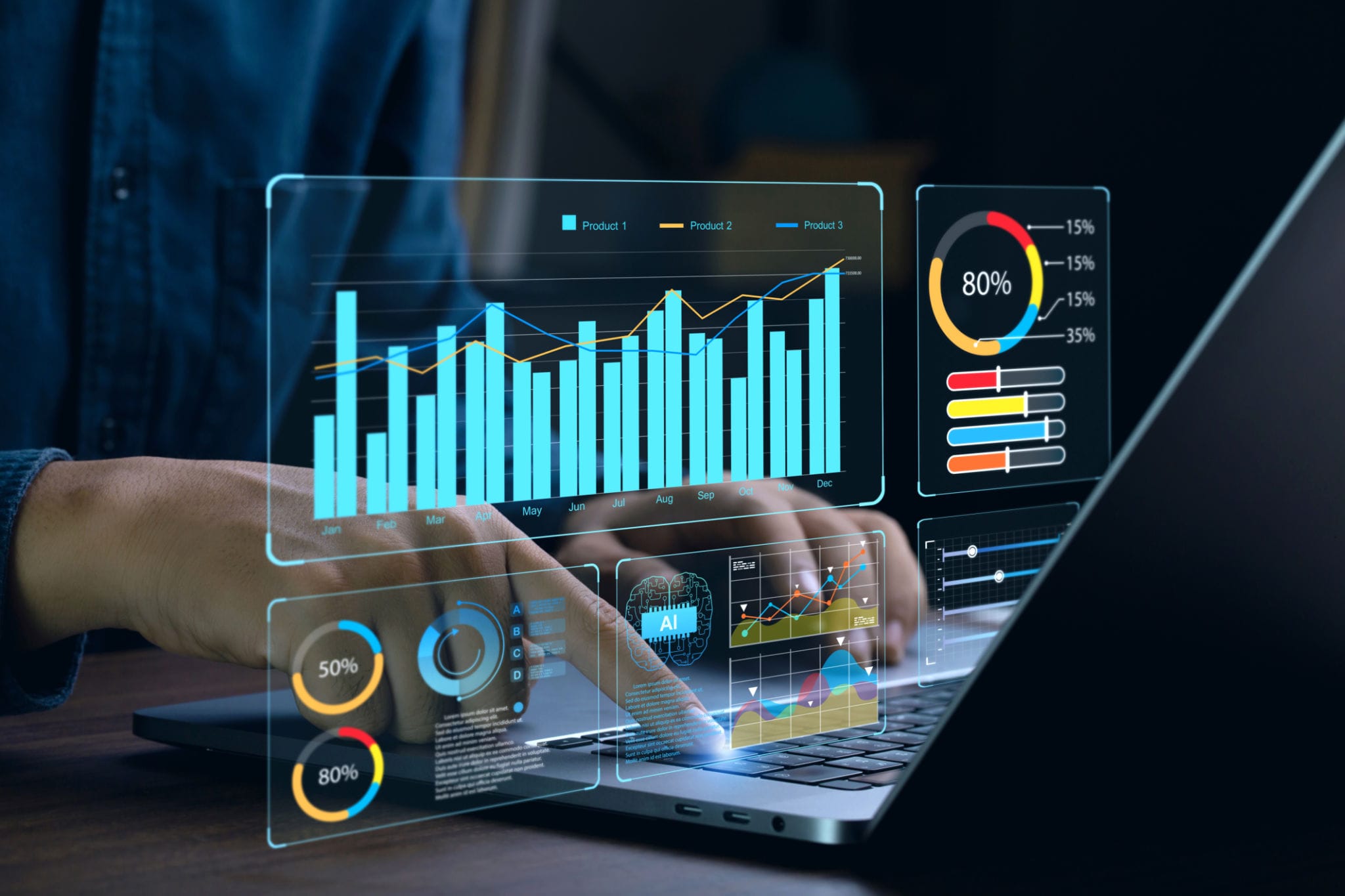In today’s digital age, the hotel industry is rapidly evolving, and data analytics plays a pivotal role in shaping its future. From personalized guest experiences to enhanced operational efficiency, hotel data analytics is becoming a game changer in the hospitality industry. By leveraging big data and predictive analytics, hotels can increase their profits, maximize guest satisfaction, and gain a competitive advantage. This article explores various ways data analytics can benefit the hotel business.
Personalized Guest Experiences
Modern travelers seek personalized service and unique products that cater to their preferences. Data analytics enables hotels to examine guest data and develop strategic plans to meet these needs, ranging from dining preferences to past booking habits. By analysing data on guest behaviour and interactions, hotels can create memorable experiences, such as providing exceptional room amenities, welcome gifts, or preferred food and beverages. Such personalized services enhance guest loyalty and improve the hotel’s reputation through positive feedback and reviews.
Dynamic Pricing
Dynamic pricing has revolutionized the hotel industry by allowing hotels to adjust room rates instantly based on local conditions, price competition, and business needs. Data analysis helps hotels create optimal pricing strategies by providing insights into market trends, customer behaviour, and seasonal changes. This approach prevents under-pricing during peak demand and overpricing during the off-season, ultimately increasing revenue and profitability.
Guest Segmentation
Segregating guests is crucial for creating targeted events and customized services that resonate with specific groups. Analytics can segment guests based on demographics, geography, and behaviour. With this information, hotels can craft tailored marketing plans. For example, if a hotel identifies a group of guests who prefer spa services, it can promote these services to them directly, improving conversion rates and return on investment.
Operational Efficiency
Efficiency is vital for hotel profitability but is often invisible to guests. Data analytics allows hotels to track metrics such as the time taken to clean rooms or the check-out process duration. This information helps identify areas for improvement, such as reducing wait times, optimizing room service hours, or managing energy consumption. By continuously analyzing performance data, hotels can reduce costs while maintaining high guest satisfaction.
Inventory Management
Proper inventory management is essential to maximize profits and avoid guest dissatisfaction. Data analytics helps hotels predict demand patterns and make informed decisions about inventory distribution. By preventing overbooking or underbooking, hotels can offer better guest experiences while minimizing revenue loss.
The Role of Big Data Analytics in the Hospitality Sector
In today’s data-driven landscape, big data analytics is essential in the hospitality sector. It involves the systematic analysis of extensive and diverse datasets from various sources to extract valuable insights and inform strategic decisions. The power of data science impacts business operations, marketing, occupancy rates, and food and beverage sales.
By harnessing big data analytics, hotels and restaurants can enhance guest experiences through personalized services, such as room preferences and local event recommendations based on past behavior. Providing such personalized experiences builds stronger customer relationships, encourages repeat visits, and enhances brand loyalty. In short, data analytics is a key driver of success in the modern hospitality industry. Businesses that leverage big data analytics are better positioned to meet customer expectations, improve operations, and outshine the competition.
The Importance of Data Analytics in the Hospitality Industry: Reasons Why It Matters
- Personalized Guest Experience: Tailored services increase guest satisfaction and loyalty.
- Optimized Pricing: Yield management adjusts prices based on demand and other factors, maximizing revenue.
- Improved Marketing Efforts: Targeted campaigns based on guest behavior and preferences.
- Operational Efficiency: Identifying and addressing inefficiencies reduces costs and improves service.
- Forecasting and Strategic Planning: Historical data helps predict future demand and plan resources effectively.
- Enhanced Food and Beverage Sales: Optimizing offerings based on purchasing trends.
- Reputation Management: Analyzing online reviews to improve service quality.
- Competitor Analysis: Understanding competitors’ strategies to stay competitive.
- Risk Management: Anticipating and mitigating potential risks.
- Sustainability Initiatives: Guiding eco-friendly practices to reduce costs and appeal to guests.
Types of Data Analytics in the Hospitality Industry
- Descriptive Analytics: Analyzing historical data to understand past events.
- Diagnostic Analytics: Understanding why something happened through detailed datasets.
- Predictive Analytics: Using statistical techniques to predict future events.
- Prescriptive Analytics: Providing recommendations for achieving specific objectives.
- Real-time Analytics: Analyzing data as it comes in to respond quickly to changing situations.
- Sentiment Analysis: Understanding emotions and opinions expressed in online reviews and social media posts.
Applications of Data Analytics in the Hospitality Industry
- Personalization: Enhancing customer satisfaction through tailored experiences.
- Dynamic Pricing: Adjusting prices based on various factors to maximize revenue.
- Predictive Maintenance: Predicting equipment failures to prevent downtime.
- Demand Forecasting: Predicting future demand for effective resource planning.
- Customer Feedback Analysis: Analyzing reviews and social media feedback for service improvement.
- Competitor Analysis: Gaining insights into competitors’ strategies.
- Targeted Marketing: Designing effective campaigns for specific customer segments.
Challenges in Implementing Data Analytics in the Hospitality Industry
- Data Privacy and Security: Ensuring the protection of sensitive customer information.
- Data Quality: Maintaining accurate and relevant data for reliable insights.
- Lack of Skilled Personnel: Finding personnel with the necessary data science skills and industry knowledge.
- Integration of Data Sources: Combining data from various sources for coherent analysis.
- Cost of Implementation: Investing in technology, tools, and skilled personnel.
- Cultural Resistance: Overcoming resistance to data-driven decision-making.
Importance of Data Governance in the Hospitality Industry
- Data Quality and Consistency: Ensuring reliable data for informed decision-making.
- Regulatory Compliance: Adhering to data protection regulations.
- Data Security: Protecting data from cyber threats.
- Privacy and Trust: Building customer trust through transparent data practices.
- Efficiency and Productivity: Enhancing operational efficiency by providing accessible and well-organized data.
- Data Monetization: Extracting value from data to optimize operations and create new revenue streams.
Benefits of Data Analytics in the Hotel Industry
Maximizing Revenue Management
Data analytics revolutionizes revenue management in the hospitality sector by allowing hoteliers to leverage sophisticated software platforms. These platforms analyze historical pricing data and current market conditions to optimize room rates and occupancy levels. This dynamic pricing strategy ensures that room prices reflect real-time demand, helping hotels maximize their revenue.
Enhancing Guest Services and Experiences
Understanding guest preferences and behaviours through data analytics enables hoteliers to offer tailored services that meet individual needs. By analyzing customer-centric insights, hotels can create unique and personalized experiences that boost customer satisfaction and loyalty. For instance, knowing a guest’s preferred room type or favourite amenities can help in delivering a more personalized stay.
Boosting Marketing Effectiveness
Data analytics allows hotels to craft highly targeted marketing campaigns by providing precise demographic and behavioural insights. By understanding the interests, past interactions, and behaviours of potential guests, hotels can direct their marketing efforts more efficiently. This leads to higher conversion rates and better allocation of advertising resources, ultimately enhancing the effectiveness of marketing strategies.
Gaining Competitive Insights
By examining competitor data, hotels can benchmark their performance against others in the industry. This includes not only direct competitors but also alternative accommodation options such as vacation rentals. These insights help in strategic planning, allowing hotels to adjust their offerings and strategies to stay competitive in their niche markets.
Improving Peripheral Services
Hotels offer a range of peripheral services, from spa treatments to conference facilities. Analyzing the usage patterns of these services can provide valuable insights into what guests value most. This data helps in refining and improving these services to better meet guest needs, thereby enhancing the overall guest experience.
Leveraging Social Media Insights
Social media platforms are invaluable for understanding guest preferences and trends. Travelers often perceive social media posts as more trustworthy than official advertisements, making these platforms crucial for gathering unbiased feedback. Analyzing social media activity helps hotels identify emerging trends and preferences, enabling them to engage with guests more effectively and strengthen customer relationships.
Data-Driven Decision Making
Data analytics provides hoteliers with actionable insights that guide decision-making processes. By translating raw data into meaningful reports, such as target audience identification, transaction analysis, sales forecasting, and performance monitoring, hotels can make informed decisions that drive business success.
Predictive Analytics for Operational Efficiency
Predictive analytics helps hoteliers anticipate future trends and customer behaviours, allowing for better resource management. For example, forecasting occupancy rates enables more efficient staffing and inventory management, reducing costs and improving operational efficiency. This proactive approach helps in maintaining optimal service levels and enhancing guest satisfaction.
Consistency in Customer Experience
By regularly analyzing feedback from reviews and surveys, hotels can identify areas for improvement and ensure a consistent customer experience. Addressing guest concerns promptly and making necessary adjustments based on data insights helps in maintaining high standards of service and fostering customer loyalty.
Supply Chain Optimization
Data analytics streamlines supply chain management by providing insights into inventory levels, supplier performance, and demand trends. This ensures that hotels can maintain optimal stock levels and avoid shortages, especially during peak times. Effective supply chain management reduces costs and enhances the overall efficiency of hotel operations.
Fraud Detection and Security
In an industry handling significant amounts of sensitive data, data analytics plays a crucial role in fraud detection and enhancing security. By monitoring transaction patterns and identifying anomalies, hotels can detect and prevent fraudulent activities, protecting both their guests and their reputation.
Strategic Planning and Growth
Overall, data analytics empowers hotels to make strategic decisions that drive growth and profitability. By harnessing the power of data, hoteliers can optimize their operations, improve guest experiences, and stay ahead of the competition. Investing in data analytics capabilities is essential for any hospitality business aiming to thrive in today’s data-driven world.
Booking Master’s Analytics and Reporting
Customizable Reporting Dashboards:
Booking Master offers user-friendly, customizable dashboards that allow you to tailor analytics to your specific needs. Visualize key performance indicators (KPIs) in a way that makes the most sense for your business, ensuring you can quickly and effectively interpret your data.
Historical and Real-Time Performance Reports:
Gain access to comprehensive reports detailing both historical and real-time performance. This empowers you with the insights needed to make data-driven decisions, improving operational efficiency and strategic planning.
Conclusion
Data analytics is crucial in the evolving hospitality industry, helping businesses enhance personalization, implement dynamic pricing, perform predictive maintenance, forecast demand, analyze customer feedback, conduct competitor analysis, and design targeted marketing strategies. Despite challenges like ensuring data privacy, maintaining data quality, finding skilled personnel, integrating data sources, managing costs, and overcoming cultural resistance, the transformative power of big data analytics in improving operations, customer experiences, and competitive edge makes it an indispensable tool for modern hospitality businesses. Investing in data science and overcoming these obstacles can lead to significant benefits for the industry.


